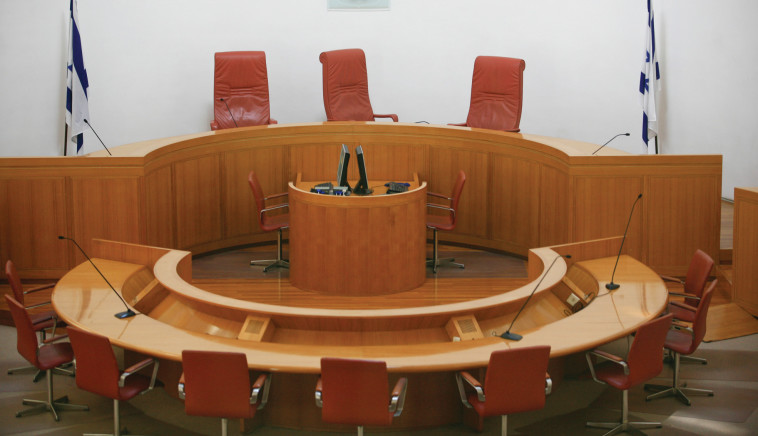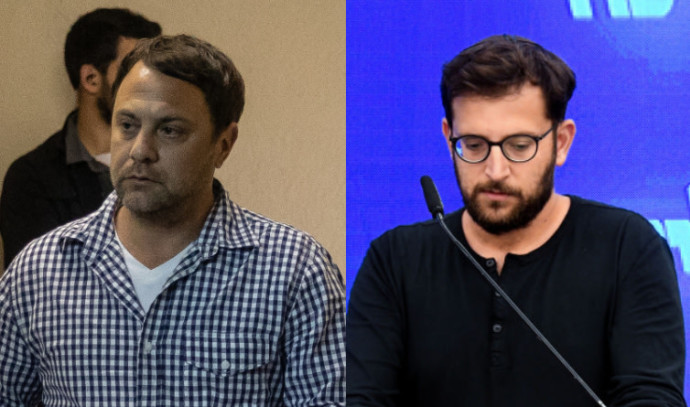The President of the Supreme Court, Esther Hayut, decided this evening (Wednesday) by virtue of her authority, to hold another hearing in an expanded panel, in the case of the hacking into the mobile phones of the Prime Minister’s advisers. It was also decided to delay the execution of the previous ruling, which allowed the police to infiltrate the counselors’ mobile phones even though these were delivered in a non-kosher manner, when the police did not inform the counselors that they could oppose the move.
Hayut exercised her authority and ordered the existence of the hearing in a panel of seven judges. Hayut will serve as the head of the panel, along with judges Neil Handel, Uzi Vogelman, Yitzhak Amit, Noam Solberg, Dafna Barak-Erez and George Kara. Hayut added that the parties would be given the opportunity to file a written argument.
Netanyahu is responding to developments in the 4000 case
Last January, the Supreme Court rejected the appeal of the prime minister’s advisers, Yonatan Orich and Ofer Golan, against the Tel Aviv District Court’s decision to allow the police to infiltrate their cell phones. This, following an investigation opened against them on suspicion of involvement in harassing the state witness in the 4000 case, Shlomo Pilber, in 2019.
As mentioned, the prime minister’s advisers were summoned for questioning by the police, during which they were asked to hand over the telephones in their possession to the investigators, without being explained that they could refuse the request, and this refusal would not be their duty.
Police investigators infiltrated their cell phones and subsequently sought court approval for a warrant to be issued for the phones. Their request was granted, intrusion orders for the telephones were issued, based on ‘confidential material’ brought before the court.
An appeal filed by Netanyahu’s advisers in the district court was denied. An application for leave to appeal filed with this court was partially granted and there it was held that illegal actions taken would be taken into account at the hearing, and may result in its adjournment and return the hearing to the Magistrates Court.
Following the return, it was decided that the intrusion orders issued were revoked except for the order proposed to Prime Minister Ofer Golan’s spokesman. The state appealed to the district that returned the intrusion orders to all the mobile devices. The previous decision that was made was regarding the appeal of the Prime Minister’s advisers on the same district decision and as stated, this appeal was rejected.
 Supreme Court Hall (Photo: Nati Shochat, Flash 90)
Supreme Court Hall (Photo: Nati Shochat, Flash 90)Judge Solberg then ruled that the police acted in violation of the law but there was no causal link showing an effect on the investigative actions taken afterwards that allowed disqualification. It was therefore ruled that there is no place, at this stage of the criminal proceedings, to examine the intensity of the violation of the rights of the suspects.
Judge Kara agreed with Solberg and added that he objected to the application of the rule of disqualification and the doctrine of protection from justice at this preliminary stage of the legal process, believing that this would severely impair, and even fatally impair, the ability to conduct the investigation and the public interest in truth-seeking.
The Vice President, asked in a minority opinion to accept the appeals and order the rejection of the request for intrusion into the mobile devices. In view of the fact that not all parties involved in the illegal search of the appellants’ mobile devices appeared for the hearing, and that in the second incarnation of the procedure, the police chose to file an amended request to search the mobile devices, without including the materials obtained for the illegal search. Accept the appeal. These and other figures show, for the Vice President’s approach, that the police did not meet the burden of presenting a sufficient evidentiary basis for issuing the requested intrusion orders.
Attorneys Amit Hadad and Noa Milstein, from the law firm of Hadad Roth Shenhar & Co., representing Orich and Golan, stated: “The Supreme Court’s decision marks the great weight that the issue of principle at hand has. The privacy of information and the practices of the police to obtain information without a warrant in clear violation of human rights, is not something that can be passed over without an in-depth discussion. We welcome the Supreme Court’s decision to hold an extended panel discussion on the issue. “
